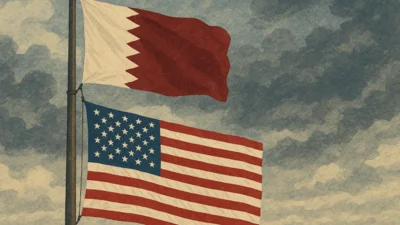The Congressional Record is a unique source of public documentation. It started in 1873, documenting nearly all the major and minor policies being discussed and debated.
“SETTING THE RECORD STRAIGHT WITH REGARD TO INDIA” mentioning the U.S. Dept of State was published in the Extensions of Remarks section on pages E2162-E2163 on Dec. 8, 2000.
The publication is reproduced in full below:
SETTING THE RECORD STRAIGHT WITH REGARD TO INDIA
______
HON. BENJAMIN A. GILMAN
of new york
in the house of representatives
Friday, December 8, 2000
Mr. GILMAN. Mr. Speaker, as the year 2000 comes to a close, we can look back over the past twelve months with a profound sense of accomplishment by pointing to a new chapter in our relationship between the United States and India. We have witnessed dramatic changes that have created a dynamic and lasting partnership as celebrated throughout President Clinton's visit to India last July and Prime Minister's Vajpayee's journey to the U.S. where, on an historic September morning, he addressed a joint meeting of the House and Senate. Today, as never before, India and the U.S., the world's two largest democracies, are collaborating on a host of issues of mutual interest, from technology to the environment and from economic development to the fight against terrorism.
Our close ties with India would not have been possible without the bipartisan cooperation of the Congress. The vast majority of our members have embraced that relationship. We have enacted congressional resolutions demonstrating our solid support for India and its democratic institutions and we have been actively engaged in promoting regional stability in an area of vital concern to U.S. interests, and the flow of commerce between our nations. In view of the overwhelming support in forging a harmonious relationship for the new millennium, it is disappointing that a few of our colleagues have seen fit to disparage and discourage that relationship by launching a series of ill-informed attacks on India and its people. In the interest of accuracy and in the broader context of the growing bonds of friendship between the U.S. and India, it is important that we set the record straight.
First, let us consider the baseless claim that the Government of India was responsible for the bombing of an Air India jet in 1985, which occurred off the coast of Ireland in a flight originating in Canada, claiming the lives of 329 passengers. That incident has now been thoroughly investigated by one of the world's most respected law enforcement agencies, the Royal Canadian Mounted Police (RCMP). On October 27, 2000 after an almost 15-year inquiry, the RCMP charged two residents in British Columbia, Ripudaman Singh Malik and Ajaib Bagri, with the murders of the innocent civilians killed in the crash of the Air India jet. One of those individuals, Mr. Malik, has been identified by Canadian authorities as the financial backer of extreme Sikh separatist groups operating from Canada. Both Canadians have also been charged with the murders of two baggage handlers in Tokyo by a bomb that was meant to destroy yet another Air India flight. These individuals, will be given a trial and afforded every opportunity to defend themselves against the murder and criminal conspiracy charges lodged against them by Canadian authorities.
As the India Abroad News Service reported recently, moderate Sikhs in the U.S. have welcomed the RCMP's apprehension of the suspects. According to India Abroad, the Sikh Council on Religion and Education--
a community think-tank based in Washington--concluded:
We, the Sikhs, condemn the killing of innocent people. We also want to emphasize in the strongest possible terms that any such employment of violence for political ends is totally against Sikh teachings and values. The Sikh religion teaches tolerance and respect for all religious beliefs and practices
. . . The consensus in the Sikh community in India and internationally has been that political issues must be resolved through dialogue, political process and peaceful means. We are surprised and shocked that there could be Sikh individuals who would commit such a horrible act . . .
These moderate and responsible views of the U.S. Sikh community stand in sharp contrast to the false information in press releases prepared by the so-called ``Council of Khalistan'' on the destruction of the Air India jet that were reflected in statements by one of our colleagues. This ``Council'' has little presence and
Turning to the second event--the massacre of 36 Sikh villagers in Chittisinghpora on March 20, 2000 which occurred just as President Clinton arrived for his state visit to India. Statements that the Indian government was responsible for this infamous act of murder, defies the facts. The true story is otherwise. Indian authorities have arrested a prime suspect in the case who disclosed that the massacre was the work of a group of terrorists in the ranks of the Hiz-ul-
Majahideen (HUM) and HUM's affiliate, the Lashkar-e-Toiba (LET). The HUM has already been designated by the State Department as a foreign terrorist organization and I have joined with other members of the Congress in calling upon the State Department to name the LET as a terrorist organization.
Both the HUM and LET are on the long list of terrorist organizations that are encouraged and supported by Pakistan. Attacks from forces outside of India, often led by armed mercenaries, are consistent with the pattern of terrorism that these and other terrorist groups have carried out for many years against innocent Hindus and Muslims in Kashmir. Their motive is clear--they seek to disrupt the territorial integrity of India and to show that a multi-religious society cannot survive. The attack on the Sikh community in Chittisinghpora, by cynically choosing the very eve of President Clinton's visit to New Delhi to perpetrate these atrocities, follows the policy of ethnic cleansing to eliminate whatever little minority population that resides in the Kashmir valley. Casting blame on India for these deliberate acts of violence is at odds with the facts of the case and India's constitutional obligation to protect the civil and human rights of its diverse communities.
Finally, let us consider recent statements claiming that India is practicing ``state terrorism'' in Punjab and Kasmir, citing unsubstantiated figures from questionable and unreliable sources. Using these claims, it is contended India should be declared a terrorist state. Such a notion flies in the face of the documented record by the U.S. State Department citing the improvement of human rights in India. It is also contrary to the partnership between the U.S. and India in combating the menace of international terrorism by engaging in day-to-
day cooperative counter-terrorist activities.
With India's record of democracy deeply rooted in its constitution and its tolerance for its many religious and ethnic communities, India itself has suffered from the ravages of terrorism to a degree virtually unparalleled around the world. The human cost of this cross-border terrorism has been staggering. Indeed, over the years, more than 16,000 Indians in Punjab have been murdered and maimed by cross-border terrorists. The deadly toll in Jammu and Kashmir has exceeded 21,000.
It is in this context that we should examine the damage that can be caused by unsubstantiated allegations and false propaganda. Charges are continually hurled against the Government of India every time a vicious act of terrorism is committed--for example, the bombing of the Air India jetliner in 1985, the attack on the Sikh community in March of this year, and the shooting of innocent pilgrims on their way to the Amarnarth caves in August. There is more than sufficient evidence to show that the last two acts committed this year were the handiwork of elements from Pakistan belonging to the LET. The facts with regard to the Air India case point to Canadian-based Sikh supra-nationalists as the source of the aviation disaster. If this kind of propaganda is uncritically allowed to hold sway, it encourages militant units like the LET to perpetrate similar atrocities against innocent civilians. It is characteristic of the modus operandi of these terrorist groups to deflect attention from their inhumane acts by deliberately shifting the blame to India.
The first and only address by a foreign head of state before a joint meeting of the 106th Congress by India's Prime Minister Vajpayee speaks volumes about the position of the U.S. Congress on U.S.-India relations.
The recent ill-informed statements by some of our colleagues do not represent the views of most Members of the U.S. Congress.
____________________








